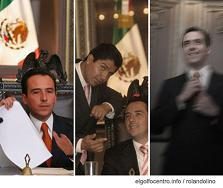 The concept of world citizenship or citizen of the world is a very complex and at the same time very interesting concept that has to do with the idea that a person is not defined exclusively by the place or territory in which they are born but rather forms part of a whole, of the entire planet and that as such, its identity cannot be delimited by geographical or physical limits imposed by man. This idea is clearly opposed to nationalism, an ideological current that defends the concept of nation and therefore that of belonging to a territory inhabited by a particular community.
The concept of world citizenship or citizen of the world is a very complex and at the same time very interesting concept that has to do with the idea that a person is not defined exclusively by the place or territory in which they are born but rather forms part of a whole, of the entire planet and that as such, its identity cannot be delimited by geographical or physical limits imposed by man. This idea is clearly opposed to nationalism, an ideological current that defends the concept of nation and therefore that of belonging to a territory inhabited by a particular community.
We can say that the idea of world citizenship is a fairly current idea that is based on phenomena such as globalization. Through it, the idea of world citizenship implies that a person is able to feel part of the entire Globe understood as the home of the entire human population instead of limiting their identity or their feeling of belonging to a specific and particular territory. Thus, this idea collides with that of nationalism, one of the most important political and social currents of the 19th century in which many countries fought hard to establish the cultural, political, social and geographical limits of that community that they would later call a nation.
For the world citizen there are no geographical or cultural limits, so those who defend this position protest against the use or need to have documents such as passports or visas that prevent free movement through the different territories. In practice, this is very complicated since the entire planet is managed through these types of elements to move from one place to another. Many others defend the idea of being able to consciously and voluntarily choose the nation to which one wants to belong, thus leaving aside the idea that one is born in a place and is obliged to carry that nationality forever, no matter how much they may have. several citizenships at the same time. Finally, the citizens of the world do not accept the idea that nationality is something determined by a State and not by the individual himself.









